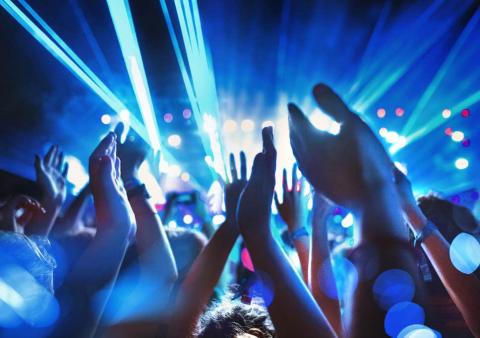
A Dutch research team have warned that strobe lighting at electronic dance music (EDM) festivals can raise the risk of epileptic seizures.
The study, published this week in the BMJ Open, examined 28 EDM festivals in Holland during 2015 for the rates of seizures linked to exposure to strobe lighting. The rates of seizures were more than three times higher for night-time events (30) than for daytime events (9).
The study also found that the strobe lights pose seizure risks to people who were not previously diagnosed with epilepsy and were unaware they had a tendency to it. The case was described of one young man who had no history of epilepsy but had a seizure at a festival on exposure to strobes and was subsequently diagnosed with photosensitive epilepsy (PSE).
The authors also stated that if a person does not have a tendency to epilepsy then strobes will not affect them.
Approximately 3-5% of people with epilepsy have PSE and have seizures which can be triggered by flicker, glare or geometric patterns with strong contrast. PSE is diagnosed on a standard EEG test where lights are flashed to elicit the photosensitive response. The rate of flicker which is most likely to provoke a seizure in a person with PSE is between 15-20 hertz (flashes per second) but seizures have been reported at rates as low as 5 or as high as 40 flashes per second. The recommended rate of flicker for public events is 4 flashes per second.
Other factors which the study concluded can contribute to seizures at festivals include sleep deprivation and stimulant drug use. Given the potential risks posed by strobe lighting, especially at night, the authors stated that the organisers of the festivals did not give adequate warnings and urged that they should warn audiences about the risks and how to lower the risk of seizures
For people with a history of PSE it is advised they would either avoid these festivals, or lower their risk by getting enough sleep, avoiding stimulant drugs, staying further back from the stage and leaving quickly if an aura-type symptom develops. The authors also stated that their results may be less applicable to other types of concerts with less use of strobes and a different type of audience. You can read more on this by visiting the BMJ Open Journal website.
